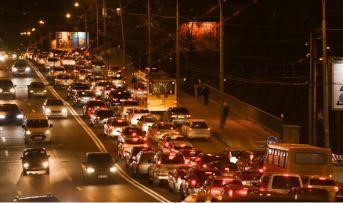General Insurance Blogs, Articles & Updates by - Magma HDI
Have us call you
- RENEW YOUR POLICY
- BUY NEW POLICY

Why are hatchbacks a preferred car segment for small families
Hatchbacks are small cars with a hatch-type opening at the rear end that we can open upwards and often come along with boot space. They do not have a separate boot from the passenger cabin. They are ideal in size for manoeuvring easily in city traffic and have a seating capacity of 4-5 people.
Hatchbacks are a preferred car segment for families, especially middle-class families, because of their size, ease, and convenience, in addition to good mileage and cost efficiency.
1. Easy manoeuvrability:
Hatchbacks provide ease of manoeuvrability compared to sedans and SUVs on busy city roads. They are easy to handle, and constant braking, taking turns, moving through narrow lanes, etc., become easier for the drivers. Moreover, it is easy to park them in the ever-shrinking parking space of the big cities.
As the Sedans are longer in size, it can be a hassle to drive them on busy streets. Parking them can be even more challenging. SUVs are heavier and can be tough to manoeuvre around if you are using them for daily use amidst heavy routine traffic.
2. Foldable rear seats:
Hatchbacks come with foldable rear seats. Just open the rear hatch, fold the back seats, and you have massive storage space for your luggage and other stuff. Hence, hatchbacks can offer more boot space than even a sedan with a separate boot if there is no passenger in the back seat.
3. Better mileage:
Hatchbacks usually have lesser kerb weight than sedans and SUVs. This directly has a positive impact on the fuel efficiency of the car. Also, hatchbacks usually have smaller engines than cars of other segments.
Hence, they provide better mileage than others and save a lot of money over a long period. SUVs usually have big engines and can be fuel guzzlers. Sedans can also have poor mileage due to their size and engine capacity.
4. Cost-effective:
Hatchbacks cost much less than SUVs and sedans. As these cars cater to the budget-conscious category, their spare parts are also reasonably priced. Hence, hatchbacks are easier to buy as well as maintain. Their running costs are much lesser than cars of other segments. They turn out to be cost-effective and pocket-friendly.
Sedans come with long, elegant, and stylish exteriors making them more expensive. SUVs, including compact-size ones, are heavier than hatchbacks and come equipped with bigger engines, making them more expensive than hatchbacks. The spare parts of sedans and SUVs are also costlier than hatchbacks. Their running costs, maintenance, and service charges are also higher.
5. Sporty:
Hatchbacks are usually sportier and more fun to drive than sedans and SUVs, especially in city traffic conditions. They come in various colours and designs and are considered practical alternatives to sports cars for everyday driving.
Hatchbacks are a preferred car segment for small families. Modern-day families also avoid buying long-sized sedans as the three-box design is of little use to them in their daily lives.
You may buy a car from any of the segments- a hatchback, a sedan, or an SUV, but you will have to go for motor insurance compulsorily in India. Driving without valid motor insurance can attract hefty fines and cancellation of your driving licence. Also, the motor insurance India policy protects you from any financial burden in case your car meets with an accident and needs repairs. The insurance company will foot the bills for you and bring your car back in shape. Hence, go for a good motor insurance India policy and stay secure.
Click HERE to buy a motor insurance India of your choice.
Disclaimer: The information provided above is for illustrative purposes only. To get more details, please refer to policy wordings and prospectus before purchasing a policy.

Here are a few tips to help you ride your two-wheeler on congested roads
Due to the extreme population density, everything in the country is crammed up and congested, which also applies to the roads. Driving on city roads or highways is complex and challenging. If you're learning to ride a two-wheeler, this article might be helpful for you.
In India, road accidents are frequently encountered. Every minute, a road accident occurs in some part of the city, which puts everyone at risk. The density of people per square foot of the road is way more than it is supposed to be. So much so that it exceeds the safety limits.
If you own a two-wheeler, the roads can leave you vulnerable and scared. You should keep many things in mind when driving through congested roads, and your safety comes at the top. You should also have a valid insurance policy to safeguard you and your two-wheeler. Research the best two wheeler insurance rate in India and purchase the policy that suits your needs and is within your budget.
Let us thoroughly look at the tips to keep you safe while driving across congested roads.
1. Do not lose focus:
Focus is extremely important while riding a vehicle. Avoid all distractions that can cause you harm while riding. Phone calls, music, or small talk with your fellow passenger can be distracting. It can lead to road accidents in a blink of an eye. Hence, it is best to avoid them all.
2. Keep an eye on the road:
Whenever you drive, you should keep an attentive and careful eye on the road, people, and other vehicles. Most people are not cautious while crossing the road, especially in market areas or other congested roads. This puts the responsibility on you to be extra alert. Look out for any pedestrians on the road when you ride your vehicle.
3. Do not over speed:
Over-speeding is one of the leading causes of road accidents and fatalities in India. Fast driving on a congested road can lead to disasters. It is advised to slow down as and when necessary. It is best not to put too much pressure on the accelerator as congested roads have comparatively lesser space to occupy vehicles and allow them to commute swiftly. Plus, the risk of colliding with pedestrians or street vendors is always high.
4. Plan your trip well:
You must have a clear idea of the route you're going to take. It is wise to sort out your route on maps before you begin your journey. You don't have to waste time and effort sorting a route in between your ride. Preferably avoid taking congested roads even though they might show the shortest route.
5. Maintain a safe distance:
You should maintain a distance from the other vehicles. Do not drive too close to other vehicles. The same is advised for people on the road as well. Maintain a safe distance from all to avoid accidents. Also, look out for the speed breakers and potholes carefully.
6. Follow traffic rules:
It is mandatory to follow all the traffic rules whenever you're on the road. Violating traffic rules can land you into several troubles, from penalties to even imprisonment. It is best to wear a helmet and carry all required documents during your ride.
These tips can help you make your way through congested city roads. If you are a new rider on the streets, you should always focus on the road and be attentive while driving. Additionally, you should also insure your vehicle with a valid insurance policy. The two wheeler insurance rate should be researched and found beforehand to help you make the best choice.
Click HERE to know the best two wheeler insurance rate to buy a comprehensive policy.
Disclaimer: The information provided above is for illustrative purposes only. To get more details, please refer to policy wordings and prospectus before purchasing a policy.

Ways to get compensation for your lost or stolen luggage from the railway authorities
India's railway network is the fourth largest in the world after the USA, Russia, and China, with over 22,593 operating trains. Train journeys are exciting and add many experiences to our lives. Have you ever wondered what happens if your luggage gets lost or stolen from your seat or the railway station itself? Are you eligible to get compensation from the Railway authorities in such cases?
The answer is "yes". Let us go through how we can get compensation for lost or stolen luggage from the railway authorities.
1. File an FIR:
The first step that you should take once you discover that your luggage is lost or stolen from a running train is to file an FIR by approaching the train conductor, attendant of the coach, TTE, or any guard or GRP escort in the train. They will provide you with an FIR form in Hindi, English, or the regional language. You will have to fill it up and give it back to them. They will register a report at the upcoming railway station.
You do not have to pay any charges for this service. Also, you don't have to break your journey by getting down at the upcoming railway station to fulfil the above formalities. However, you can take help from RPF Assistance Posts present at major railway stations. This same process is to be followed in case of loot by dacoits in moving trains.
2. Post FIR:
Once you have filed the FIR for your lost or stolen luggage, the railway authorities will try to search and locate your luggage. If they are successful in doing so, they will contact you and give it back to you. If they cannot trace it within 6 months of lodging the FIR, they will have to compensate you for your lost luggage. They will do a fair assessment of the value of your luggage and compensate you accordingly.
3. Is ticket reservation compulsory:
No, you don't need to travel only in the reserved class to claim compensation for the theft of your luggage on the train. As per the direction of the National Consumer Disputes Redressal Commission (NCDRC), Railway authorities are liable to compensate you for the theft of your luggage even in the general compartment where you do not have any reservation but hold a valid ticket.
4. Case of booked luggage:
When you book your luggage with the Railways while travelling on a train, you can declare your luggage's true value. You will have to pay a prescribed percentage charge of the value of the goods as luggage handling charges to the Railways. In such a case, you are entitled to get the full value of your luggage as compensation in case it gets lost or stolen en route.
However, suppose you did not disclose the true value of your luggage while booking it. In that case, the monetary liability of the Railways for compensation is limited to INR 100/- per kilogram of goods booked.
Travelling by train is inevitable for most of us in our regular lives. Hence, it becomes crucial for us to safeguard our luggage during train journeys. We should be clear about the compensation policy of the Railways in case of lost or stolen luggage so that we can follow it and not suffer losses in case of theft or loot of our luggage.
General insurance India is also important to cover your luggage during your travel. Remember to add travel insurance to your safety while making railway bookings. Taking this small precautionary step can keep you in a relaxed state of mind and protect you from unexpected financial losses. You can also claim for mishaps while travelling, and your insurance provider will compensate you for the damage caused.
Click HERE to buy a general insurance India policy to cover your travel plans.
Disclaimer: The information provided above is for illustrative purposes only. To get more details, please refer to policy wordings and prospectus before purchasing a policy.

Here are the ways to find the expiry date of your bike insurance online
India ranks among the top 10 countries with the most two-wheelers in the world. Indian roads and highways are crowded with two-wheelers of all makes and designs running in different directions. This also means that you need to take great care of the vehicle that you ride on. It should have all the proper documentation. You will be compelled to pay a fine or compensation if you lack these documents.
Your bike insurance plays a pivotal role in the safety of your two-wheeler. You must renew your insurance from time to time to be free from any future problems. The expiry can result in a significant financial loss if it is not renewed. You may also be penalised for not adhering to valid insurance.
To prevent yourself from this mishap, you should be well aware of the expiry date of your bike insurance. You now have the option to know about the expiry date of your bike insurance online. The steps are hassle-free and doable.
Let's look at the ways and means to renew bike insurance online.
1. Visit the website of your insurer:
You need to go to the insurance company's website to look at your policy's expiry date. The steps are:
● Visit the website or app of the insurance company
● Sign in to your account
● Fill in all the important information and log in
● Go to the bike policy that you've opted for
● You will get all the information, including the expiry date
2. By VAHAN website:
VAHAN is the official website of the Ministry of Road Transport & Highways, Govt. of India, which keeps the records of all the registered vehicles in India. It has all the information about the insurance policies of these vehicles. The expiry date of your insurance can be easily checked on this website. The steps to follow are:
● Go to the VAHAN website
● On the designated field, enter the registration details of your bike
● Click on the button marked Proceed
● Go to the Services menu
● From the list of options, click on Additional Services
● When the new page is shown, enter all the details asked for
● Enter your registration number, chassis, engine number, and verification code
● Go to Verify Details
● An OTP will be sent to your registered number for verification
● Upon giving the information, you will see all the details, including the expiry date of your insurance
3. By Email:
Your insurer sends all the essential information, including policy documents, to your registered email ID. If you want to look at the bike insurance expiry date, you can simply search for it in your email inbox. Make sure it is the same email you used to register for the bike insurance.
4. Through RTO’s website:
For a country like India, RTO has all the given information as a record for all your needs. This also means that it has a track record of the expiry date of your bike insurance. You simply have to log in to the official RTO website and look at the process. Follow the steps to access all the information related to your bike. It also includes the expiry date of your policy.
5. State transport department website:
Most Indian states have introduced the new feature of checking your bike details online. The transport department of these websites has all the information you will need for your insurance policy. Go to the official website and enter the details to access the information you're looking for. You will have details of the expiry date as well.
These are some of the most effective ways to check the expiry date of your bike insurance. You should always renew bike insurance online to protect it against any accidents. Failing to renew your policy in time can make it null and void, and you won't be able to enjoy the benefits anymore. Damages incurred during this phase will not be covered by your policy, putting financial pressure on you.
Click HERE to renew bike insurance online.
Disclaimer: The information provided above is for illustrative purposes only. To get more details, please refer to policy wordings and prospectus before purchasing a policy.


